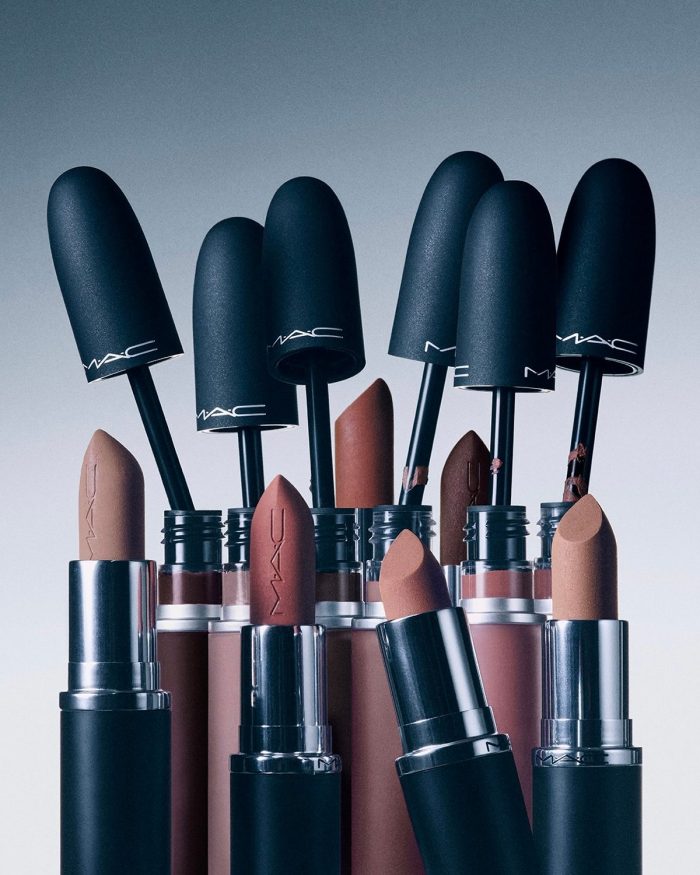Hold onto your highlighters and brace for impact: M·A·C Cosmetics just pulled a wild card from fashion’s most glitter-dusted deck. Nicola Formichetti—style alchemist, Lady Gaga’s former partner-in-creative-crime, and the man who once made meat dresses mainstream—is now the Global Creative Director of M·A·C. And honestly? It might be the shake-up the beauty world didn’t know it desperately needed.
Announced today by The Estée Lauder Companies, Formichetti’s appointment feels less like a corporate reshuffle and more like the start of a cultural renaissance. One that’s equal parts bold eyeliner and boundary-breaking attitude.
A Makeup Maverick Meets a Brand in Search of Its Next Big Moment
Let’s face it: M·A·C, once the ultimate cool kid in the beauty clique, has seen its crown tilted in recent years. Still respected, yes. Still globally adored, certainly. But with new indie disruptors on TikTok, AI-driven beauty startups, and Gen Z consumers demanding authenticity over legacy, the brand has been tiptoeing the tightrope between heritage and relevance.
Enter Formichetti, whose personal brand is basically “relevance in high heels.” Known for his shape-shifting creativity and fearless fusion of fashion, music, and tech, his resume reads like a fever dream of futuristic cool: creative director at Mugler, Diesel, Uniqlo, and, of course, the original mastermind behind Gaga’s visual universe.
Appointing him isn’t just a play—it’s a manifesto.
The Audacity of Appointing a Visionary
Formichetti is not the safe choice. He’s the kind of creative who designs for emotion first, commerce second—and sometimes not at all. That might terrify some boardrooms, but it could be exactly what M·A·C needs. This isn’t just a pivot toward youth or digital; it’s a reclaiming of artistry in an age of algorithm-driven sameness.
M·A·C, at its best, has always been about more than lipsticks and pigments—it was an attitude. It was the brand for those who didn’t fit in, or didn’t want to. Its mantra “All Ages, All Races, All Genders” was once revolutionary. In 2025, that message still matters—but it needs to be restated in a language that speaks to a new, chaotic, hyper-connected generation.

photo: @M·A·C Cosmetics
Beauty as Performance, Retail as Theater
Expect Formichetti’s vision to be far more immersive than merely cosmetic. With experience spanning AR fashion installations, digital avatars, and experimental retail, he’s likely to infuse M·A·C with theatricality. Think experiential pop-ups, artist-led product lines, and packaging that feels more couture than consumer.
Beauty has always been a kind of armor, but under Formichetti, it might become full-on costume—designed not just for the street or the selfie, but for the stage of modern life.
And let’s not ignore the global flair. His Italian-Japanese heritage brings a cross-cultural sensitivity that is rarer than it should be at this level. In a world where beauty preferences vary wildly by region—and where “one-size-fits-all” no longer flies—this could become a true competitive advantage.
Will Commerce Follow the Creativity?
Here’s where things get interesting. While Formichetti is a genius of style, storytelling, and spectacle, he’s not always a commercial closer. Some of his most iconic projects have been more culturally resonant than financially booming. And that’s fine—until it’s not. In a corporate context (and let’s not forget, M·A·C answers to The Estée Lauder Companies, a publicly traded giant), creativity is only sustainable if it sells.
So the real question isn’t whether Nicola will make magic. He will. The question is whether M·A·C can monetize that magic without taming it.
Can they turn subversive artistry into strategic growth?
Can a brand known for its backstage edge navigate front-of-store retail demands?
And will Nicola—the eternal outsider—feel at home inside a global conglomerate?
Final Swipe: A Bet on Emotion Over Algorithm
This move is daring, defiant, and delightfully irrational—which makes it rare in today’s beauty business, where trend-chasing and data-crunching often overshadow instinct and imagination.
M·A·C has always thrived when it leans into emotion: Viva Glam. RuPaul’s first campaign. That first swipe of Ruby Woo that made you feel invincible. In appointing Nicola Formichetti, they’re doubling down on that legacy.
So here’s to a brand that’s not afraid to get messy again. To color outside the lines. To put a little Gaga back into the gloss.
Welcome to the era of Maximum Artistry. We’ll be watching—and hopefully, wearing—every moment.
Because at the end of the day, beauty isn’t about perfection. It’s about transformation. And no one transforms quite like Nicola.

